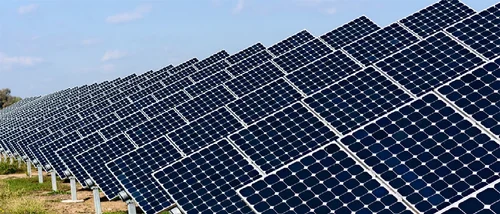The Federal Government has announced a nationwide clean-cooking initiative that aims to reach four million households using solar-powered solutions. The announcement came following a high-level meeting between the Ministry of Environment and CSR Solutions Ltd, a key private sector partner in the rollout of the project.
The initiative is designed to replace traditional, harmful cooking fuels such as firewood and kerosene with clean, solar-powered alternatives. According to the Ministry, this transition is expected to significantly improve public health, create green jobs, and promote environmental sustainability across communities in Nigeria.
In tandem with this, the Federal Government has inaugurated a Technical Working Committee on the National Carbon Budget, signaling Nigeria’s commitment to achieving its climate targets under the Paris Agreement. The development was confirmed in a statement posted on the official social media handle of the Ministry of Environment.
The carbon budget will operate on a five-year cycle, aligned with the updated Nationally Determined Contributions (NDC 3.0), which outlines Nigeria’s climate goals. These targets will be reviewed annually to monitor progress and ensure accountability in the fight against climate change.
Speaking during the inauguration ceremony in Abuja, the Minister of Environment, Balarabe Abbas Lawal, described Nigeria’s climate journey as a defining moment in the nation’s environmental and economic future. He emphasized that developing a robust and credible carbon budget is not just a technical task but a national obligation that requires collaboration across government, civil society, and the private sector.
Related Articles:
- CGWCI marks 2 years of uninterrupted Solar Power at Oleh Primary Healthcare Centre
- Federal Government takes 24 Universities off National Grid, targets full solar transition by 2027
- Delta Community excited as Rural Electrification Agency lights up Streets with Solar Power
“This is more than just an environmental milestone,” Lawal stated. “It is an opportunity to synchronize our climate policies with Nigeria’s economic growth, social progress, and long-term sustainability. The carbon budget framework will guide our actions and reflect our commitment to a low-carbon economy.”
Lawal also recalled the provisions of the Climate Change Act of 2021, which mandates the Ministry of Environment, in consultation with the Ministry of Budget and Economic Planning, to set and periodically revise a national carbon budget that aligns with Nigeria’s NDCs and global climate responsibilities.
He reaffirmed Nigeria’s pledge to cut emissions and meet the ambitious targets under the Paris Agreement, noting that the role of development partners and stakeholders will be critical to the success of both the clean cooking program and the carbon budget implementation.
“As we embark on this historic journey, we must recognize that climate change is not a distant threat, it is a present challenge that demands urgent and collective action,” the Minister said. “The clean-cooking initiative and the national carbon budget are pillars of our strategy to lead a sustainable and climate-resilient Nigeria.”
With millions of Nigerians still dependent on unsafe cooking methods and the country facing mounting pressure to lower its carbon emissions, this dual-pronged approach marks a significant stride in aligning environmental policy with tangible socio-economic benefits.






